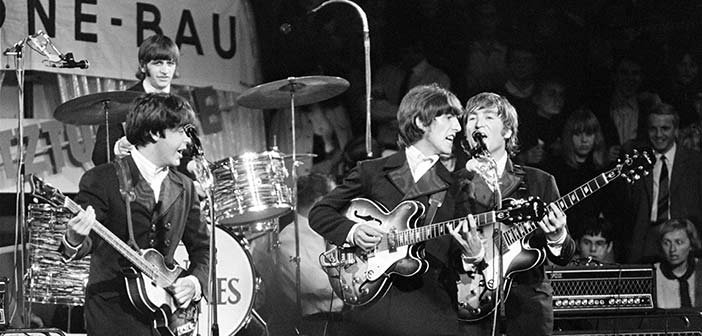Film Review | The Beatles: Eight Days a Week Offers Valuable Insight into an Influential Band
In the years following their break-up, John Lennon would say that the Beatles were in the crow’s nest of the ship that would discover the ‘New World.’ He was referring of course to the 1960s, a decade of discovery and experimentation. At this time support for the Civil Rights movement was proliferating, a nuclear threat would forever change the world’s geopolitical landscape, the Vietnam War was shaking America’s very confidence in itself, and ‘hippie’ counterculture encouraged youths to challenge the established order of their parents’ generation. It was a period of simultaneous excitement and unease, and this is the climate director Ron Howard (A Beautiful Mind, Frost/Nixon) hopes to capture in The Beatles: Eight Days a Week. It is a film that looks at the band’s touring years of 1963 to 1966 and the ‘Beatlemania’ they inspired.
John Lennon’s quote is not without some merit: although Howard claims the Beatles’ touring years are his focus, it is apparent as the film unfolds that this is not entirely true. Yes, the film features live performances from the band and recounts their various backstage antics, but it also documents the social, political and cultural fallout from the Beatles’ introduction to the music scene. In order to emphasise their wide-ranging influence, Howard asks entertainers from every walk of celebrity life to describe how the band has influenced them: Richard Curtis, known for his work in comedy, describes their wit and charm; actor Sigourney Weaver describes the electric-energy of seeing them live (and even appears at a concert in archive footage); composer Howard Goodall emphasises the genius of their compositions.

Most spectacularly, Whoopi Goldberg describes how the group transcended racial boundaries, stating “I never saw them as white guys!” This point returns later in the film: upon hearing that the audience at the Gator Bowl in Jacksonville, Florida was to be racially segregated, the Beatles refused to play unless promoters desegregated the audience. Their wish was ultimately granted and on September 11th 1964, the Beatles performed to a mixed-race crowd of 23,000. The Beatles were also famously critical of the Vietnam War and were huge proponents of the hippie ‘free love’ movement. While watching the film it becomes increasingly apparent that the Beatles were important voices for the time – the 1960s needed the Beatles as much as the Beatles needed the 1960s.
The archival concert footage featured in the film is masterfully remastered, with the group sounding crisp and clear. This makes the Beatles live experience far more tangible than before. The film also does well to emphasise the importance of Brian Epstein and George Martin. The Beatles’ success did not occur in a vacuum: Epstein helped propel them to the top by honing their image, and Martin helped create their musical style in the recording studios of Abbey Road. The film ends just as, arguably, the most interesting period of the Beatles’ story is about to begin: tired of constant touring, social events, photoshoots and fan harassment, in 1966 the group retire to the studio to focus all their energy into making music, resulting in experimental albums like Sgt. Pepper, the White Album, and Let It Be. However, in not covering the band’s entire history, Howard utilises the shorter time span to create a focused, insightful piece into the most influential band in history.
The Beatles: Eight Days a Week will be simulcast worldwide on September 15th with an exclusive showing at the Light House on that day. It will then be available to stream from Hulu. View the trailer below.
[youtube id=”0fFyZzqPDws” align=”center” autoplay=”no” maxwidth=”750"]

